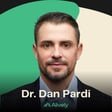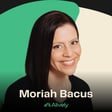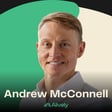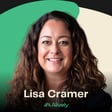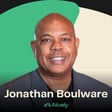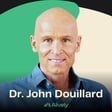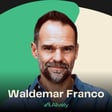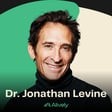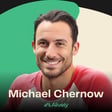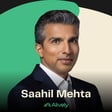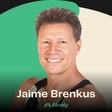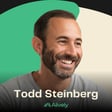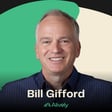
Eat Your Way To A Healthy Heart with Cardiologist Dr. Baxter Montgomery - E24
Are you struggling with deteriorating heart health? Or are you interested in learning about how to prevent heart disease? Then maybe you should look at following a whole foods and plant-based diet. This episode explores the power of a plant-based diet in revitalizing heart health, as we explore how nutritional changes can significantly reduce dependency on medications and lead to significant health improvements. You'll learn all about food processing, practices like time-restricted eating and how your diet goes hand-in-hand with other, often small, lifestyle improvements.
Dr. Baxter Montgomery is a cardiologist and cardiac electrophysiologist revolutionizing heart health with his integrative approach that meshes traditional medicine with modern nutritional strategies. As a prominent advocate of plant-based nutrition, Dr. Montgomery’s holistic approach focuses on uniting physical, mental, and spiritual well-being. By reducing medication dependency and improving patient outcomes with targeted detox programs, infusion therapies, and exercise regimens, Dr. Montgomery continues to set the high standards in contemporary cardiovascular care.
“I saw results that far exceeded what I saw in the allopathic world. And that really caught my attention.” - Dr. Baxter Montgomery
In this episode you will learn:
- The importance of strength and exercise for elderly patients, with practical examples of how simple exercises can improve well-being.
- An inspirational patient success story, demonstrating the transformative power of detox programs, infusion therapies, and exercise.
- Dr. Montgomery’s approach to progressing patients from illness to wellness and eventually to optimal health, emphasizing the role of nutrition and exercise.
- Essential tips for improving sleep hygiene, from consistent bedtimes to advanced methods like infrared saunas and neurofeedback.
- The significance of social connections and community engagement for overall health, including practical ways to foster these connections.
- Dr. Montgomery's food classification system, focusing on plant-based nutrition and the effects of different levels of food processing.
Resources
- Connect with Dr. Montgomery on Instagram: https://www.instagram.com/montgomeryheartandwellness
- Find out all about Dr. Montgomery’s practice and services offered: https://montgomeryheart.com/
- Buy Dr. Montgomery’s book, ‘The Food Prescription for Better Health’: https://www.amazon.com/stores/author/B0072JC0GY
- Shop all the products Dr. Ghannoum mentions in the episode: https://alively.com/products/baxter-montgomery
This podcast was produced by the team at Zapods Podcast Agency:
Find the products, practices, and routines discussed on the Alively website:

